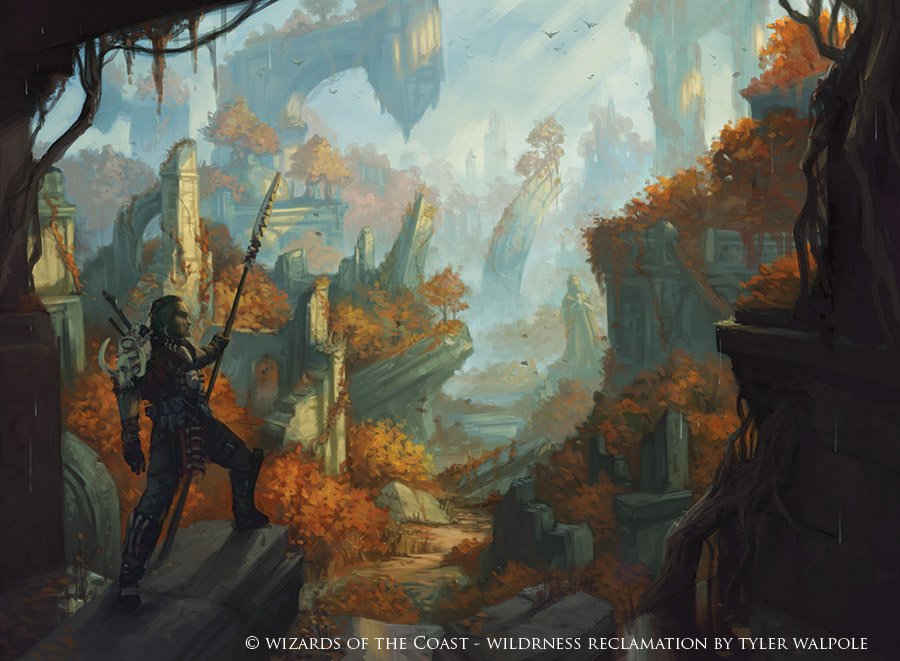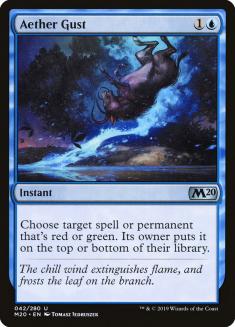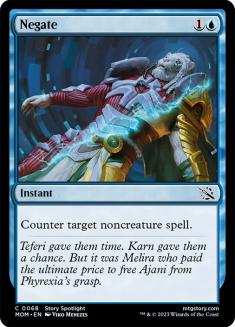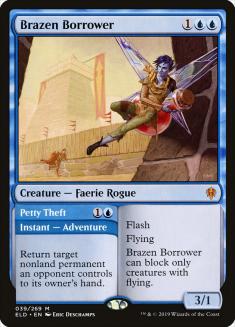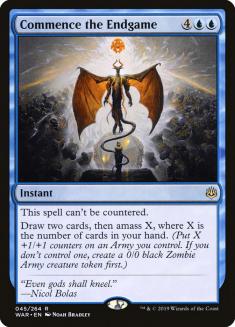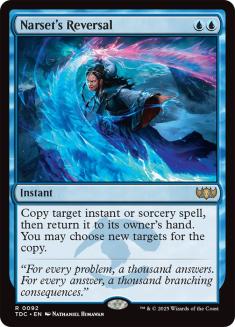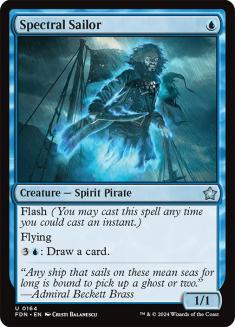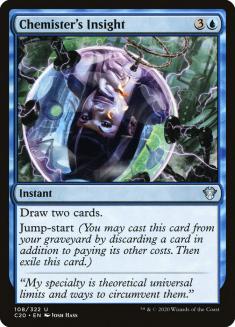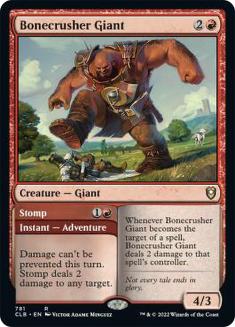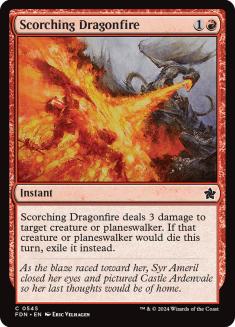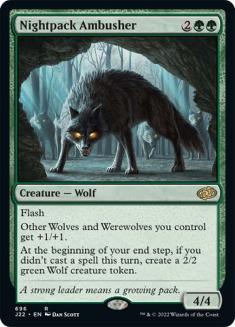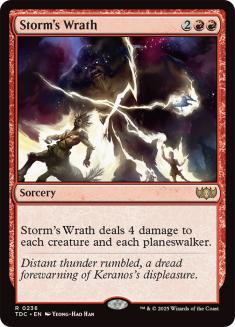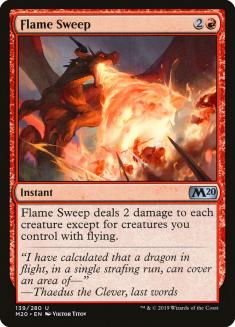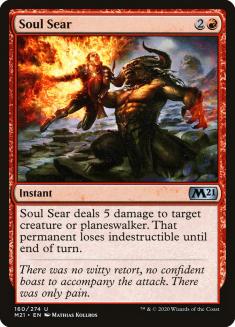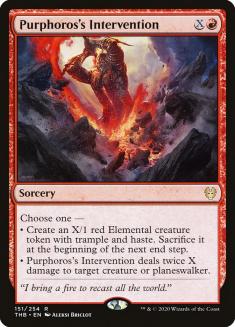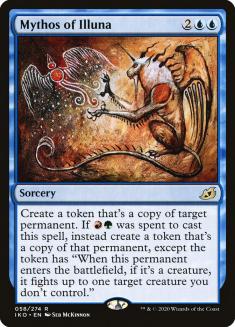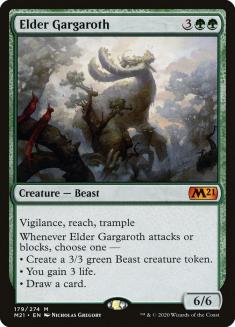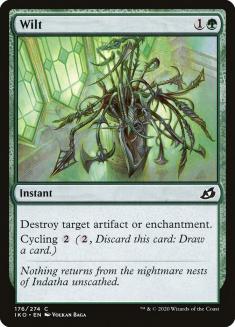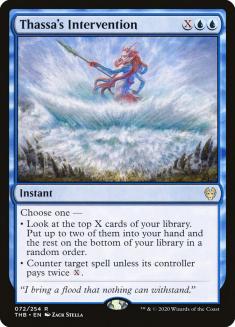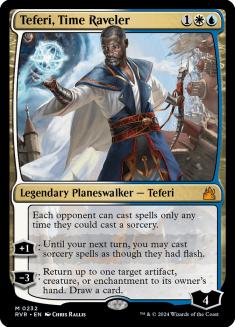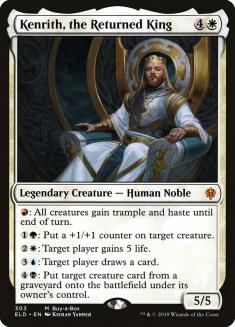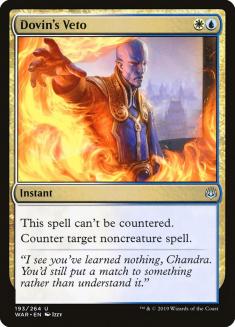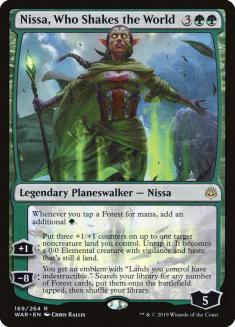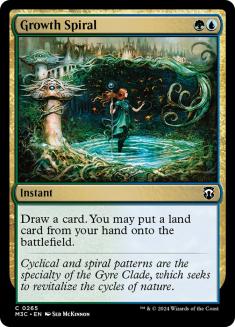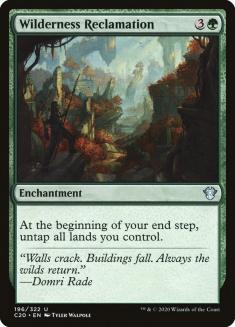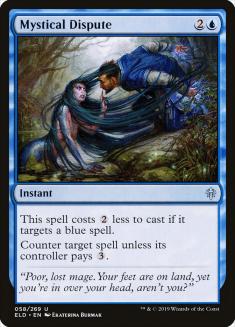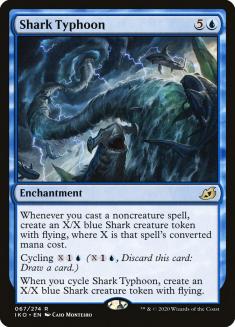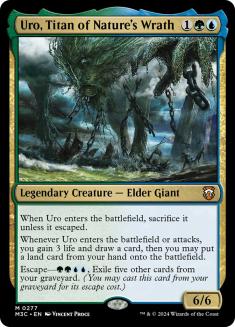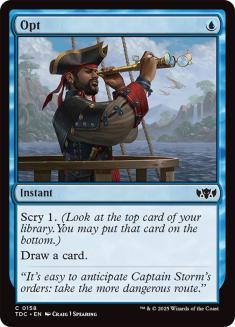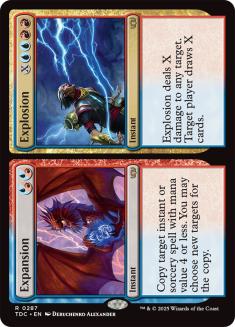This past weekend, I won an SCG Tour Online Championship Qualifier with Temur Reclamation after a great performance across the previous three Qualifiers (including a Finals appearance in very first one). I faced a variety of different decks across the day, but most notably I played a lot of the mirror match, which will be one of the main topics of this article due to the success I’ve been experiencing in this matchup.
Creatures (5)
Planeswalkers (1)
Lands (28)
Spells (26)

It’s a strange place to be in to have had Temur Reclamation be around for so long and yet still be learning about it and trying to understand the best ways to build and play it. People build their Temur Reclamation lists pretty differently from one another, and whilst you could probably metagame reasonably well against any specific 75, the problem is you can’t metagame against every Temur Reclamation list at once.
Sure, Mono-White Aggro might be good against a list that is leaning on Aether Gust, Brazen Borrower and Storm’s Wrath against the aggressive decks, but the moment you face someone with Flame Sweep and Bonecrusher Giant, you’re going to find yourself winning a lot less often. This is a secret strength of Temur Reclamation; all those other players that are building their Reclamation lists differently from you are actually just looking out for you by stopping any of your bad matchups from becoming too prominent.
That said, since you have the tools to beat almost anything you want but certainly not everything at once, you have to pick and choose your battles in the construction of your list. Ideally your list should be changing at least a little week to week based on what other decks you most expect to be facing in addition to the usual mirrors, psuedo-mirrors, and ever-present yet rarely great Bant Ramp.
Erin Diaz, in designing the list I took to victory in this past weekend’s Championship Qualifier, correctly recognised that Sacrifice decks would be dramatically underrepresented and Mono-Green Aggro would be the most popular of the aggressive decks; this is why you see very few copies of Scorching Dragonfire, a card which is at its best against Midnight Reaper, Mayhem Devil, and Cauldron Familiar, and the full playset of Storm’s Wrath in the sideboard, which is particularly brutal for Mono-Green Aggro to have to fight through.
Which is to say, the list I played may have been the best list to be playing last Saturday but it doesn’t mean it will be the best one for next Saturday; don’t expect me to run back the exact same list for the upcoming Players Tour Finals. An important skill to develop is tuning Temur Reclamation to expected metagames, and that requires understanding all the tools available to you and what they’re there for.
Your flex-spots in the maindeck should all be trying to look towards the mirror match, whilst simultaneously making nods towards other matchups. I’m personally nervous about playing more than one or two copies of Aether Gust, as there are certainly matchups where the card is bad and (as I’ll get to later) I think the card is somewhat overrated in the mirror, but it’s a fine card to increase the totals of if you expect the non-Growth Spiral decks to mainly be Mono-Green Aggro, Mono-Red Aggro, and Claim the Firstborn decks.
Negate, on the other hand, is particularly great in Game 1 of the mirror and helps insulate you from Teferi, Time Raveler if you expect that card to be particularly popular. Brazen Borrower is the anti-aggro card you want to be maindecking right now due to how it also has utility in the mirror answering Shark tokens and Zombie Armies, and setting back Wilderness Reclamations that slip through your countermagic. It’s easy to get into the mindset that Brazen Borrower isn’t actually that good against aggro since the creature half of the card is often close to irrelevant, but your late-game goes so far over the top of the aggressive decks that all you need to do is buy yourself time to get there and Petty Theft is fine at helping fill that role.
If you’re looking for a real edge in the mirror, these cards help with that. I think Commence the Endgame is pretty clearly the best of these options, and you can even maindeck it in small numbers; being uncounterable shatters the draw-go patterns in the mirror, especially with the token it produces often being much larger than a Turn 6 or Turn 7 Shark Typhoon token would be.
I like Narset’s Reversal in large part due to the growing popularity of Commence the Endgame. Not only is it one of the only real ways to fight back against this card, it does so in dramatic fashion, sometimes feeling like you’ve actually just won the game when you get to bounce the opposing Commence the Endgame, make your own token, and still have enough mana open to stop a Wilderness Reclamation from resolving. It’s also a great tool against Explosion, and you can even get some pretty clean two-for-ones by targeting your own Negate with it in counterspell fights.
Spectral Sailor and Chemister’s Insight are both solid cards in the draw-go patterns in the mirror too, but they actually shine the most against a deck like Bant Ramp. Spectral Sailor in particular is not only a card advantage source but also very resilient to interaction, sneaking past cards like Mystical Dispute and Dovin’s Veto, and is notably a huge pain for Teferi, Time Raveler to deal with, as having a random 1/1 flyer on the battlefield makes it hard for your opponent to bounce any of your other permanents without Teferi immediately dying on your next turn.
With the mirror being so important, I’m hesitant to maindeck any cards like Bonecrusher Giant or Scorching Dragonfire that have extremely limited utility in the mirror, though they are both fine sideboard cards. Bonecrusher Giant is particularly appealing against small creature aggro getting you clean two-for-ones, though is quite poor against Sacrifice decks where Witch’s Oven often prevents you from getting both halves of this spell and Claim the Firstborn makes casting the creature half of Bonecrusher Giant pretty unappealing regardless. Scorching Dragonfire is the reverse of this, great against Sacrifice decks but very much just okay against aggressive decks; you’ll sideboard it in, and you’ll be happy to have it in your deck, but it’s not exactly going to steal you games like Bonecrusher Giant does.
If you really want more anti-aggro tools in your maindeck, or if it doesn’t feel like Brazen Borrower lines up well against whatever variety of aggro you expect to face, Nightpack Ambusher is a fine card to have access to. It’s is another card I consider a little overrated in the mirror (again, I’ll get into this soon), but it’s certainly a card with real text there and very capable of contributing to you winning games meanwhile it can absolutely solo unprepared aggro opponents.
There are lots of options for filling out your anti-aggro options in your sideboard. Storm’s Wrath is crushing for Mono-Green Aggro, Flame Sweep is at its best against swarm strategies like Mono-White or Mono-Red, whilst Soul Sear is most notable as a way to kill Shifting Ceratops or Torbran, Thane of Red Fell without taking damage in the process but can also have some utility against Korvold, Fae-Cursed King if you’ve kept Jund’s Sacrifice engines in check.
Purphoros’s Intervention was a tool I tried out in an effort to try and kill Rotting Regisaur for good and it is a fine card, but even if Mono-Black Aggro hadn’t largely disappeared I think I’d still have come to the conclusion that Brazen Borrower is just better as stalling Regisaur for a turn or two is often enough regardless. Mythos of Illuna kind of fits into a similar box where I was trying it as a way to get some nice two-for-ones against Mono-Green Aggro, and it is certainly nice there, but I’m not convinced it is actually better than just playing more copies of Storm’s Wrath instead. Elder Gargaroth is a risky proposition if you expect a lot of copies of Act of Treason, Heartless Act, or Noxious Grasp to be in opposing lists, but it is great against decks like Mono-Green and Mono-White.
Please don’t register these cards. Wilt is bad in the mirror where it is far too situational and will never be one of the 60 best cards you can present post-sideboard, and you already crush Jund decks without this card. Meanwhile Thassa’s Intervention is embarrassing when every Temur Reclamation list is maindecking Mystical Disputes.
You could, of course, choose to register white cards if you wanted to. Four-Colour Reclamation has been picking up steam and is very much favoured in psuedo-mirrors due to the power of Teferi, Time Raveler. Any other white cards you gain access to are just bonuses, but it really is all about Teferi. The biggest cost to doing this is that you lose access to Blast Zone due to the demands that an additional colour places on your manabase, and losing access to Blast Zone makes one-drop aggro and Bant Ramp both quite a bit scarier.
I think Four-Colour Reclamation is a very valid option to consider in a world where the mirror is the most important matchup, and it is an option I’m considering for the Players Tour Finals this weekend, though there are very real costs associated with heading in this direction that can be exploited if people expect this approach to be popular.
The single copy of Nissa, Who Shakes the World that I played looks strange, and I get if people don’t want to play her in the deck; she is vulnerable to interaction and less explosive than Wilderness Reclamation is. That said it is often better to draw a single Reclamation and a single Nissa than multiple Reclamations as Nissa and Reclamation multiply mana together really nicely, and the pressure that Nissa provides can completely change what the game is suddenly about against anyone who just tries to treat you like a control deck.
Playing the Mirror Match
So, you’ve tuned a Temur Reclamation list to your liking, got in some practice matches, and you sit down at a tournament and find out that your opponent has also very wisely registered the card Wilderness Reclamation in their Core Set 2021 Standard decklist. How do you play the mirror match?
Understanding how to do well in the Reclamation mirror is a tough thing to approach because games can play out wildly differently. Some games the person on the play will easily force through a very early Wilderness Reclamation and functionally end the game; other games feature a lot of posturing and draw-go whilst players try to figure out the right moment to start presenting threats.
Maybe an early Nightpack Ambusher catches your opponent by surprise, either singlehandedly killing them or presenting an opening for you to resolve a Wilderness Reclamation. Commence the Endgame is worse at presenting these openings, but often every bit as effective at fundamentally changing what the game is about by going for your opponent’s throat.
Meanwhile, some games go to Turn 10 as everyone’s resources trade off and suddenly a topdecked Uro, Titan of Nature’s Wrath, cleanly squeezing through opposing Negates or Mystical Disputes, gets to take over. These different directions feel so divergent that you can’t really create solid heuristics that can always be followed to the letter, which is part of what makes this matchup so tough to play.
The most helpful way to frame what you’re trying to do in the mirror is to try to figure out what style of game you’re currently in, what currently matters most, and also what styles of game the current game is most likely to diverge into and what it would take to get to these alternative paths. There’s a huge amount of risk assessment involved in all the actions you take as a result of this; how dangerous is it to take on a certain approach to the current situation and to what extent do the current situation and the possibilities it could branch into demand that you take on this potential danger regardless?
The simplest possible situation, as a starting point for understanding these branching possibilities, is maybe the most crushingly advantageous position you can have in the early-game. You won the die roll, took the play, resolved Growth Spiral on Turn 2, and find yourself with four mana on Turn 3 sitting across from your opponent’s two mana, wondering whether you should cast Wilderness Reclamation.
If you do cast it, the game branches in two possible paths. In the first, your opponent does answer it on the stack, doesn’t get to use this turn resolving a Growth Spiral of their own, and thus can’t untap with enough mana on the battlefield to threaten a Wilderness Reclamation of their own. The game continues and likely enters draw-go patterns as now you both have to respect the possibility of your opponent countering your Reclamation only to untap and immediately cast their own.
Alternatively, your Turn 3 Reclamation resolves, you untap all your mana, and you’re either crushingly ahead if you have countermagic to disrupt your opponent’s chance of resolving a Reclamation of their own, or somewhat ahead if they manage to resolve their own Turn 3 Reclamation, as you get to fight over protecting your own Explosion first.
If you don’t cast the Reclamation, the game will naturally branch into the draw-go portion of the game and you will have a sorcery-speed four-mana enchantment in your hand that you likely won’t get to put onto the stack for a few more turns, whilst your opponent gets to keep an Aether Gust or Negate in hand that will remain effective for a long time.
Jamming the Reclamation in this situation is a pretty obvious play that I’d expect you were all doing regardless, but I present this analysis because it helps you understand the mindset you need to approach the much more complicated scenarios you’ll quickly encounter later in the game; what directions could the game head based on your current decision point, how good or bad is it for the game to head in these directions, and what are the chances each of these scenarios occurs? Try, when possible, to break this down in explicit terms until such a point as you start to build up instincts for this stuff.
Assuming the game doesn’t degenerate rapidly from someone resolving a Turn 3 Wilderness Reclamation on the play, the game will enter a draw-go state that has the potential to branch off in multiple different directions and will increasingly tend towards doing so the longer it remains in this draw-go state. Draw-go is the default state here because of how efficient countermagic is at preventing your own Wilderness Reclamation from resolving, how bad your countermagic is at defending a cast Wilderness Reclamation, and how failing to resolve a Wilderness Reclamation leaves you tapped out and unable to prevent your opponent’s one from resolving. Depending on how your hand looks you will either be thrilled to have both players caught in this stalemate, or utterly miserable about the scenario, and this will likely determine who has to make the first move towards attempting to resolve the titular enchantment.
As an example of most of the above principles, let’s imagine your hand has a Wilderness Reclamation, a Mystical Dispute, a Negate, an Expansion and a couple of lands, and that you and your opponent both have five lands on the battlefield.
You can’t cast your Negate to protect your Wilderness Reclamation this turn as you don’t have enough mana, and your Mystical Dispute won’t even be able to take down an opposing Negate or Aether Gust because draw-go leads to all of your opponent’s mana being untapped. You can Mystical Dispute an opposing Mystical Dispute here to push through Reclamation, sure, but it just feels staggeringly unlikely that your Reclamation will actually resolve, and the risk is huge because your opponent gets to threaten to untap and slam their own copy of the card on to the battlefield after you fail to resolve yours.
Meanwhile, with two pieces of countermagic in hand and an Expansion to act as a makeshift counterspell if needed, if you just say go, it is impossible for your opponent to force through their own Reclamation, so with no other external pressures bearing down on you, it makes sense to just say go.
Having six lands each only barely changes this. Like, sure, your Negate can take down your opponent’s first counterspell but with something like twelve cards in your opponent’s deck that can function as the second counterspell the chance you win this war is not high. So you have to say go, again. And your opponent has to say go, again. This is the default state you’re going to fall back into time and time again for large chunks of games.
So, what changes these patterns?
Pressure.
Nightpack Ambusher is the most dramatic, but most high-variance, embodiment of this pressure. The problem with Nightpack Ambusher is partially that it gets out-scaled by everything else going on in the game pretty quickly, and partially that it is so much scarier to have cast in your end-step when you have four mana than when you have five; at five mana you can Mystical Dispute it and still hold open a Negate for an opposing Wilderness Reclamation, whereas at four mana the only way you can stop it sticking whilst continuing to threaten Negate is with an Aether Gust or Petty Theft. For this reason I dramatically prefer having Nightpack Ambusher in my deck in the mirror on the play as opposed to on the draw.
That said, when Ambusher takes over, it is game-warping. Let’s say you Aether Gust your opponent’s early-game Nightpack Ambusher, they untap, redraw it, play their land for the turn, and then pass the turn back to you and you don’t have another way to interact with it.
What do you do?
If you don’t cast your Wilderness Reclamation, your opponent is going to cast the Ambusher again and untap with potential interaction up to stop you developing on further turns, and the game is often just functionally over. If you cast your Wilderness Reclamation and they counter it instead of resolving their Ambusher, then this is only bad for you if they untap and cast a Reclamation of their own to punish; if they counter and don’t have their own Reclamation, then you’ve bought yourself one turn’s reprieve from their Ambusher, and if instead they don’t have the counterspell on your Reclamation and just recast their Ambusher, then your resolved Reclamation should give you a really good fighting chance against the Wolf, especially knowing your opponent seemingly doesn’t have countermagic in hand presently.
The presence of incoming pressure forces action even if said action incurs risk of its own.
Where this gets really tricky is when the pressure is less explicit than this but instead just a possibility. Your opponent passes with four mana open in the early game and you don’t have an answer to a possible Nightpack Ambusher; what do you do? Your opponent passes with six mana open and you don’t have an answer to the Zombie Army that a possible Commence the Endgame would make in your end step; what do you do?
These questions are extremely challenging to answer, hyper-situational, and defy attempts to apply heuristics to them because they’re all based on feel, intuition, and made-up numbers in your head. But they’re questions you will have to be very aware of, and very willing to confront, and you must be unafraid to look silly when you decide that, yes, all these feelings and numbers mean in this specific instance it is correct to jam Wilderness Reclamation into your opponent’s six open mana, not use your Negate to protect it, use the Negate to fight over the follow-up opposing Wilderness Reclamation instead, and then you happen to get hit with a Mystical Dispute that protects their Reclamation and now you’re just too far back to ever recover. These things happen, and it’s better to make the “mathematically correct” play than to be scared of looking foolish if the risk you’re accepting with this play comes to fruition.
Shark Typhoon is much more subtle than Ambusher and Commence in how it forces action. Your opponent making a 2/2 or 3/3 Shark in your end step isn’t particularly scary, as this creature will take a long time to actually kill you. Once there are a couple of Sharks chomping at your feet, though, the damage starts to add up quickly and the break-point where you’re forced to act has to come eventually; otherwise you’ll find yourself with an awful lot of cards in hand when you die.
This point where action is forced is somehow even less clearly defined than with Ambusher and Commence, though. If you wait until you can only survive one more combat step, then things going badly for you spells almost certain doom, as you won’t have time to clean up both your opponent’s Sharks and their potential Reclamation setup. The longer you wait, though, the less effective Mystical Dispute will be for your opponent at helping prevent your Reclamation from resolving, and so the more chance you actually manage to push it through and start to regain ground.
I tend to cycle my Shark Typhoons pretty early on, happy to only be making 2/2 or 3/3 Sharks, but this is not a hard rule. Cycling early helps ensure you don’t miss land drops, and if your opponent decides to get aggressive with their Reclamations, then you may not have time to cycle them in the mid-game when you’re desperate for interaction to help prevent your opponent resolving their enchantment. Don’t get too greedy with this unless there’s a noticeable advantage to be gained in doing so.
I rarely cast Brazen Borrower without having first cast the Petty Theft half, and this is in large part due to the strength of Commence and Shark Typhoon. These tokens, acting as uncounterable threats, are particularly scary when you and your opponent are locked in the draw-go portion of the game, and Petty Theft is excellent recourse against the pressure they provide. The flipside of this is that the Brazen Borrower half of the card, whilst certainly relevant, gets embarrassed by your opponent cycling a 1/1 Shark, meaning it is better to think of the creature half of this Adventure spell as a nice bonus you get access to after your bounce spell rather than something you’re eager to get onto the battlefield as soon as possible.
Think of Uro, Titan of Nature’s Wrath as being at its most important when games devolve into fail states. It’s not that the card isn’t good in other sorts of games, as it often is, but it’s definitely less clean-cut when people are making large Zombie Armies or have Reclamations threatening to cast Explosions that you’re forced to hold open counterspells to answer, or when land drops haven’t developed enough such that it’s hard to get the card on the battlefield whilst respecting Mystical Dispute. Most of the time Uro is fine and relevant and probably even annoying but not really game-defining.
And Uro is awkward, too, especially in the early-game.
When can you even cast the card? Most of the time in the first few turns of the game, if you cast Uro, then your opponent can force through a Wilderness Reclamation with the aid of Mystical Dispute, and suddenly the game is just incredibly hard for you to win anymore. If you can’t cycle your Uro early, then as a compromise I like doing it when I’m at six mana since putting in that seventh land off Uro’s trigger represents two two-mana pieces of interaction to prevent an opposing Reclamation, but there’s no reliable rule to follow with this.
But when the game hits its fail state, everyone’s counterspells having traded for each other’s threats, then a topdecked Uro dominates. This is important because if you have an Uro ready, and your opponent doesn’t, then it is in your interest to force the game into a fail state, to gladly have your threats trade off with opposing interaction and make the game go as long as possible. Uro lines up so well against Negate, Mystical Dispute, and Petty Theft that it is basically unstoppable in this fail state; it’s slightly worse against Aether Gust, but even then it represents inevitability as long as you can just make the game continue.
A note on Mystical Dispute, specifically. This card is at times the card you fear most from your opponent, particularly in the early-game, since it is so efficient at forcing through threats and dealing with opposing countermagic. It is also, in the late-game, often embarrassing. The balancing act is to make sure you have Mystical Dispute in hand long enough to ensure you’re protected, but not so long that it goes functionally dead.
This makes me a big fan of using Dispute to tackle down opposing Uros and Growth Spirals early on; however, if I have no other counterspells in hand I’ll be more hesitant to do so. Preventing early ramp is key to delaying the threat posed by Commence and Shark Typhoon, but if you have no counterspells in hand and your position becomes too commanding, then your opponent will start to get aggressive with their Reclamations and will be pleasantly surprised to find you have nothing. You can choose to still counter this early ramp anyway and hope that your opponent fully respects the possibility of you having counterspells for follow-up threats, but be careful if you choose to walk this line, as it is dangerous (though certainly not without merit).
Sideboarding for the Mirror
With my Championship Qualifier-winning list, this is how I generally like to sideboard, though you can vary your sideboarding based on your opponent’s list, their playstyle, and just to catch them off-guard.
Out (on the play):
In (on the play):
Out (on the draw):
In (on the draw):
I really like Nightpack Ambusher on the play for reasons mentioned earlier, and similarly like Aether Gust a lot more when I’m on the draw specifically because I’m so scared of Ambusher when I’m on the draw. Aether Gust is not a terribly impressive card in the matchup in general, and I think it is a bit overrated; sending a Wilderness Reclamation or Expansion // Explosion to the top of your opponent’s deck is nice and all, but then you still have to deal with it again next turn. Against Ambusher it is different, though, because where Reclamation and Expansion // Explosion don’t really lose power as the game goes on, Nightpack Ambusher certainly does, and every turn your can Memory Lapse it represents it being one turn weaker.
Sideboarding out a Shark Typhoon on the draw looks strange and is mainly a concession to having too many cards I want in my deck after sideboarding, though the card is meaningfully worse when you’re on the draw as your Sharks will often just be smaller than your opponents.
Unless something truly remarkable shows up, I intend to register the card Wilderness Reclamation in Core Set 2021 Standard for every week that it remains legal until rotation. You should too, if you want to win, and I hope this article helps you in doing so.

